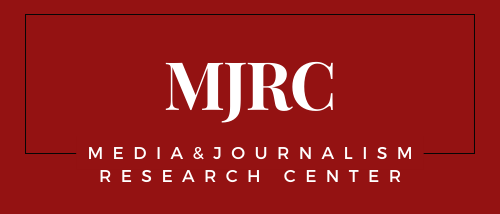Marius Dragomir Discusses Media Independence on VoiCEE Podcast
Media freedom, media capture and the opportunities for independent journalism in Central and Eastern Europe are some of the topics discussed by CMDS Director Marius Dragomir and Transitions executive director and editor-in-chief Jeremy Druker in the latest episode of the VoiCEE podcast.
In the discussion, Marius Dragomir traces the current wave of deterioration of media freedom across the CEE region to the economic crisis of 2007-2008, which left many media outlets vulnerable to takeover by oligarchs. The worst consequence of the crisis is media capture, which is now a real problem in many counties.
The combination of the economic crisis, change in business models and the rise of a class of oligarchs means that the space of independent journalism has shrunk tremendously over the past decade, he says.
The State Media Monitor, the world’s most complete state media database, recently launched by CMDS, is also discussed. Dragomir says he hopes it will be a useful resource not only for journalists but also for academics and regulators or policy makers who are interested in ensuring the editorial independence of public media.
They discuss how the independent public media model is now on the verge of extinction, with only two examples in the region, in the Czech Republic and in Lithuania. With attacks on the model even in western Europe, the independence of these media cannot be taken for granted, Dragomir says, explaining the importance and the potential role of independent public service media.
He discusses the role transnational institutions such as the EU play in maintaining the independence of media, partly through funding and partly through regulation.
For the EU, it is crucial to design a model of regulation which is transnational and does not leave any room for national decision-making in the hands of the governments that are, in fact, a part of the problem, he says.
He discusses the crucial importance of audience paying for content, of private businesses supporting independent media, and of the existence of funds such as Pluralis, which invests in independent media outlets to prevent their takeover by oligarchs.
He warns of not making the same mistakes that were made in 2010, when nobody paid too much attention to the Hungarian government adopting a series of regulations that started the media capture phenomenon. Foreign companies leaving the central-eastern European media markets was also not given the attention it deserved. “When these days we see attempts by governments in the region to get into content regulation, we need to react,” Dragomir warns.
Ending on a more optimistic note, he explains why he expects in the coming years a strong response from the field of independent journalism.
Image by Samuel Morazan from Pixabay
Link:
Check out the State Media Monitor
Invest in independent media research and join a community of practice.
Your contribution supports MJRC’s investigations and global analysis. As a supporter, you can receive early access to new findings, invitations to small-group briefings, inclusion in our Supporters Circle updates, and the option to be listed on our Supporters Page.
Contribute to MJRC
